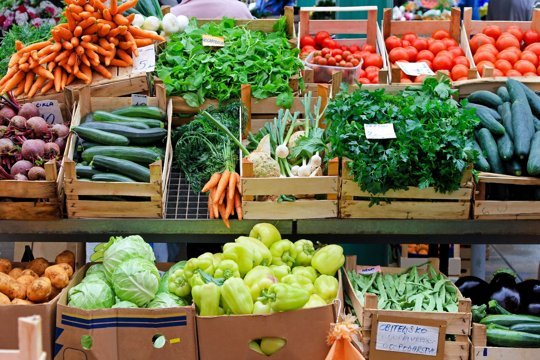<p style="text-align: justify;">Indeed, you need food to live, but many of the food options in the world are hardly edible if you think about all the pesticides and other artificial ingredients in the food. This is why eating organic food is so important. When it comes down to it, organic food is important for the environment, for your health, and energy sustainability. Moreover, organic food doesn&#8217;t require the use of so much water. In some states, with water becoming more and more rare, it is becoming increasingly important to produce and eat organic food. The truth of the matter is that it tastes better too. Here are five major benefits of eating organic food.</p>
<p style="text-align: justify;"><img class="aligncenter size-full wp-image-3542" alt="5 Major Benefits Of Eating Organic Food" src="https://medusamagazine.com/wp-content/uploads/2015/05/5-Major-Benefits-Of-Eating-Organic-Food.jpg" width="540" height="360" /></p>
<ol style="text-align: justify;">
<li>It&#8217;s better for the environment. Indeed, the production of food in the world is a process that can be damaging for the environment and the sustainability of the planet. For instance, major forests are wiped out to make room for massive cow farms. Moreover, it takes lots of chemicals and harmful methods to produce the food. Organic food, on the other hand, is produced without these methods and without the damage to the environment.</li>
<li>It&#8217;s better for your health. Indeed, non-organic food can be incredibly injurious to your health. Not only can the pesticides cause you to get sick &#8211; they can also cause other major long-term cognitive issues. Moreover, non-organic food is not as nutritious, so you aren&#8217;t getting the most out of your food. Organic food, however, is incredibly nutritious. Instead of eating non-organic fruits and vegetables, you may want to think about stocking up on organic fruits and vegetables.</li>
<li>It tastes better than non-organic food. One of the main benefits of organic food is that it can often tastes a lot better than non-organic food. Indeed, a lot of food manufacturers have tried to genetically modify food so that it tastes better, but what ended up happening is that the food actually became blander. Plus, clever marketing has led us to believe that these non-organic foods taste better. The truth is, however, that organic food is incredibly tasty and rich with flavor. Just try biting into a ripe organic tomato or apple.</li>
<li>It&#8217;s better for the economy. When most of our food is manufactured by big farming industries, the smaller farmers get left out and the economy takes a hit. Organic farming allows small family run farms to not only produce food, but also to generate revenue for the economy, which can have a positive cyclical effect. For millennia, small farming has been the backbone of many economies, but if you take that away, the economy can become very shaky and there will be fewer jobs.</li>
</ol>
<p style="text-align: justify;">It will help save water in drought-stricken regions. On top of everything, nonorganic food requires a lot of water to produce. Not only do nonorganic farms need plenty of water to hydrate &#8211; they also need plenty of water to wash off the pesticides. If you live in a drought-stricken state, you may want to cut back on nonorganic food and urge your friends and neighbors to do the same thing. Organic farming is one of the only ways to sustainably grow food &#8211; without wasting water or doing harm to the environment.</p>

5 Major Benefits Of Eating Organic Food
